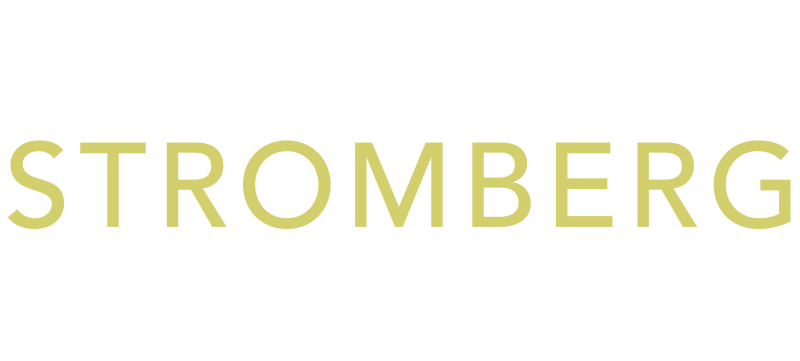As an unsecured creditor, you are often placed in a difficult position when it comes to debtors who cannot afford to pay their bills. You can seek judgment, but you are often taken in line with other unsecured creditors who do not expect to receive on their debts as well. Furthermore, you are always subject to the risk that the debtor will simply file for bankruptcy and wipe the slate clean.
Where the debtor does not make the empty threat, and actually assigns into bankruptcy, the unsecured creditor is often left to take pennies on the dollar. However, section 178 of the Bankruptcy and Insolvency Act provides a laundry list of reasons why a debt may survive the bankruptcy. While there are ten separate situations in which the debt may survive bankruptcy, from a creditor’s perspective the most common is that the debt was incurred as a result of fraud or fraudulent misrepresentation.
In Saskatchewan, the most common allegation of fraud occurs when a debtor applies for financing and knowingly misleads the creditor in filling out the disclosure forms. The failure to include certain debts, or misleading the creditor about the value of one’s assets, may result in a finding of fraud. In other examples, the creditor may allege that the debtor fraudulently conveyed his or her assets on the eve of bankruptcy and therefore, those assets must be returned.
Where a creditor suspects this to be the case, and the debtor has filed for bankruptcy, the creditor is left with two, non-exclusive, options:
- The creditor may oppose the discharge of the debtor from bankruptcy on the basis of fraud. The fraud claim may then proceed as part of the bankruptcy matter and affect the conditions or suspension of the discharge. Typically, there must be more than a mere allegation of fraud before the Registrar in Bankruptcy will intervene; and/or
- The creditor may commence a completely independent action on the basis of fraud against the debtor. This may be started before or after the bankruptcy proceeding.
Where option two is selected, this brings into play important considerations regarding how a limitations period may be effected. An assignment into bankruptcy automatically stays all proceedings against the debtor and in Saskatchewan, The Limitations Act provides for a two-year window from the date a claim was discovered to commence an action.
Luckily for creditors, section 25 of The Limitations Act provides that the limitations period is stayed during the course of the bankruptcy proceeding. The two-year calculation stops on the date of assignment and restarts at the date of discharge. This provides creditors with the ability to see how the bankruptcy plays out, determine the amount of their deficit and make an educated decision on whether they should run the risk of attempting to prove fraud and collect.
Interestingly enough, the Ontario Superior Court was recently given the opportunity to weigh in on a unique interplay between limitations periods and the Bankruptcy and Insolvency Act. In Re Eyton, 2021 ONSC 3646, Mr. Eyton was assigned to bankruptcy, listing all of his creditors in his initial assignment documents. Notably present was a debt owing to Forty-One Peter Street Inc. from 2001, nearly 18 years prior to his assignment. While some periodic payments were made and Mr. Eyton made plenty of empty promises to Forty-One Peter Street Inc., it was relatively clear that the Forty-One Peter Street Inc. debt was limitations barred had there not been an assignment into bankruptcy.
Notwithstanding that, upon being listed on the statement of creditors, Forty-One Peter Street Inc. filed a proof of claim for $400,000. The Trustee disallowed the claim by Forty-One Peter Street Inc., and, for obvious reasons, the other creditors also objected to its inclusion. The Court concluded that, notwithstanding the fact the bankrupt conceded the debt, given the debt was statute-barred it was not an enforceable debt and Forty-One Peter Street was not entitled to share with the other unsecured creditors.
It is interesting to note that the Court concluded that just because a bankrupt lists and concedes a claim, it does not always follow that the creditor is entitled to a share of the Estate. The creditor must still be able to prove their claim in bankruptcy and a limitations period would prevent the creditor from doing so. An assignment in bankruptcy cannot operate to save a creditor and revive an otherwise unenforceable claim.
The above serves to reinforce that, while in certain circumstances the Bankruptcy and Insolvency Act can provide creditors with additional time, creditors must be ever vigilant of impending limitations periods and be careful not be mislead by creditor’s empty promises and threats. If you are of the opinion the two-year period is approaching, it is best to issue the claim out of an abundance of caution and plan accordingly thereafter.
Every determination of reasonableness will, of course, always be fact-specific.
A side question not raised in Bryant Estate, was whether a party in the position of Franklin’s estate could also simply rely on the inherent jurisdiction of the Court of Queen’s Bench to secure an order for an accounting. That specific question will therefore have to await the guidance of a future court.
If you are interested in bankruptcy and insolvency, commercial litigation, debt collection, and related matters, Robertson Stromberg LLP would be pleased to assist. For more information, please contact Travis K. Kusch at 306.933.1373 or email t.kusch@rslaw.com.
Related Articles
Alexandre and Epp Present to Healthcare Engineers
Misty Alexandre and Jared Epp presented a plenary session at the 39th Annual Conference of the Canadian Healthcare Engineering Society held in Saskatoon September 22-24. Their presentation outlined the requirements of the recent prompt payment legislation introduced...
Holding Taxpayers at Ransom
James Steele's article on the latest target of data bank robbers - Canadian municipalities - appears in the August 2019 issue of Canadian Underwriter. James speaks anecdotally of Canadian municipalities who have been hijacked by cyber criminals and advises municipal...
Kusch and Clavelle Contribute to CBA BarNotes
The most recent issue of the Canadian Bar Associations's BarNotes contains articles by two RS lawyers. Travis Kusch's article “Closely Held Corporations: Avoiding the Messy Break-up” offers practical advice to families who enter into business together. Curtis...
Sean Sinclair on Right to Know Panel
The Public Service Information Community Connection (PSICC) is presenting 2019 Saskatchewan Connections Conference : Access, Privacy, Security, IM, & Health Information September 26 and 27 in Saskatoon. At the conference, the Information and Privacy Commissioner...
RS listed in “Top Prairie Firms”
Canadian Lawyer magazine publishes the results of its annual survey of top prairie firms in the Fall issue. We are happy to announce that Robertson Stromberg is again listed as a top prairie law firm. Lawyers, in-house counsel and clients from across Canada were...
Robertson Stromberg Well-Represented as Best Lawyers
Best Lawyers™ recognizes extraordinary lawyers in private practice through an exhaustive peer-review process. Today, Best Lawyers™, published the 14th Edition of The Best Lawyers in Canada and we are pleased to announce that twelve lawyers from the firm have been...
Moving Forward with Prompt Payment
Jared Epp's construction law article called "Moving Forward with Prompt Payment" was published in the summer issue of We Build, the magazine of the Saskatchewan Construction Association. The article concerns the upcoming changes to the Saskatchewan Builder's Lien Act....
Sean Sinclair Represents Media in Police Scanner Issue
Media outlets in Saskatchewan no longer have access to Police One, the police radio scanner that allowed journalists to hear what is happening on the secure police channel. Both Saskatoon and Regina police services say they have closed their scanner channels to media...
Andrew Gaucher Presents at “Planning Ahead Seminar”
On Wednesday June 26, Andrew Gaucher will be speaking about the importance of Estate Planning at the “Planning Ahead Seminar” hosted by Hillcrest Memorial Gardens & Funeral Home. The evening session, beginning at 6:30 will also include other planning aspects such...
New Associates at Robertson Stromberg
Congratulations to former articling students Andrew Gaucher and Curtis Clavelle who have signed the roll and accepted positions as Associate Lawyers. Both Andrew and Curtis have joined the Litigation team at Robertson Stromberg.

